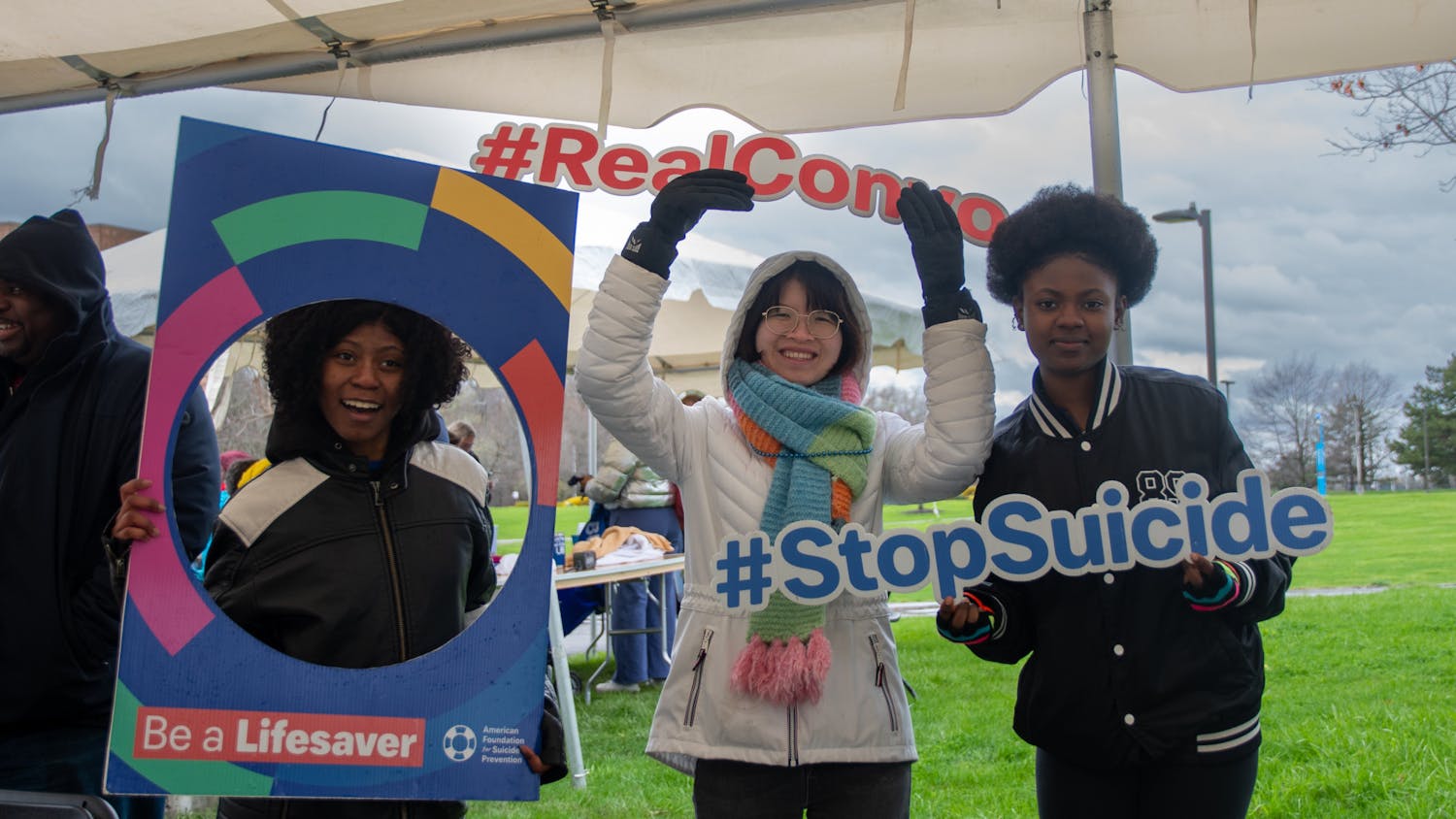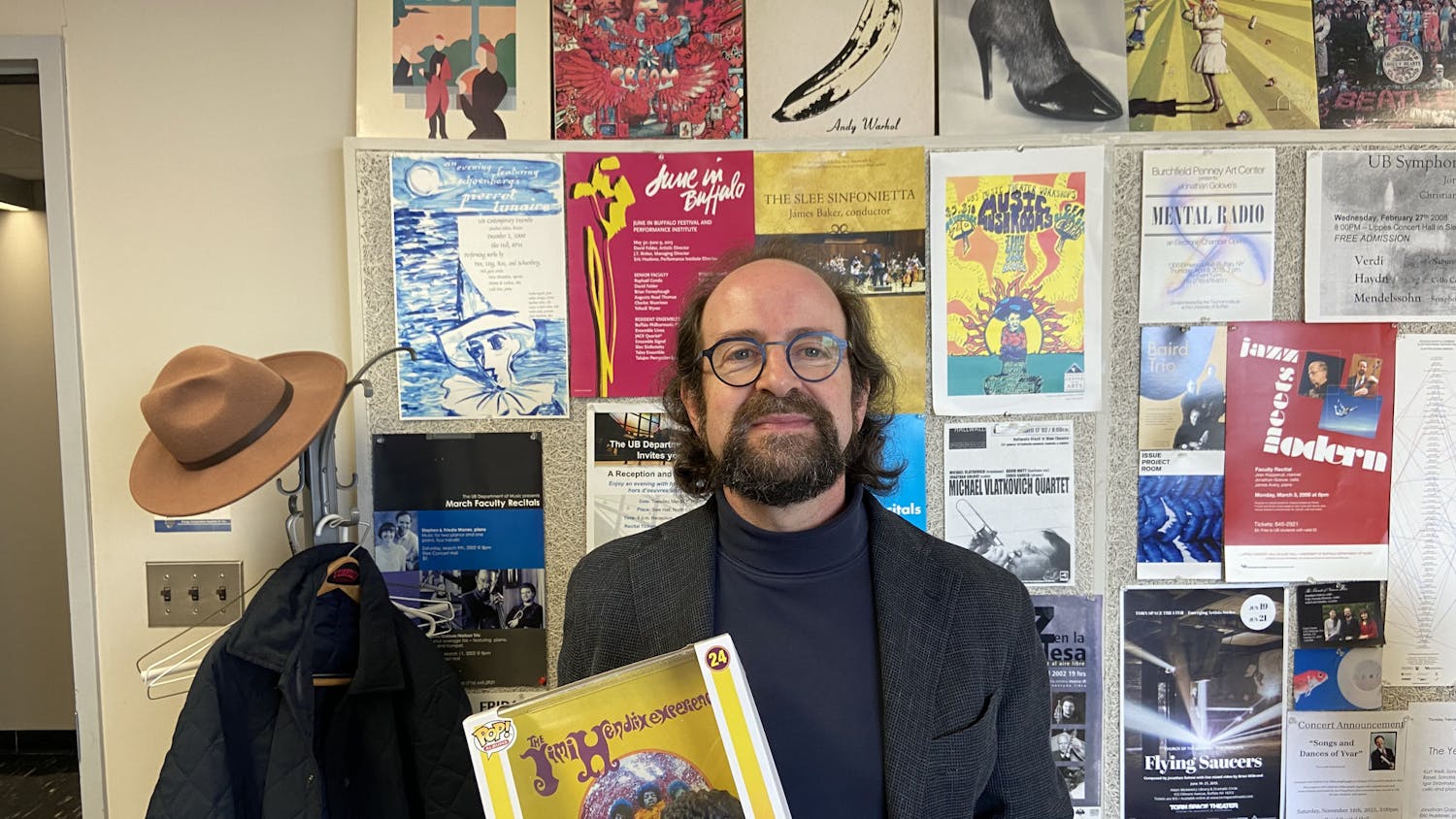R. Lorraine Collins said marijuana is becoming more prevalent and accepted, but not enough people are educated on its medical uses.
Collins, PhD and associate dean for Research at the School of Public Health, was one of the panelists in Friday morning’s discussion on medical marijuana. Medical experts gathered in 125 Kapoor Hall to examine the successes, failures and challenges of keeping facts straight about medical marijuana in a country where multiple states have legalized recreational use.
“These states legalized marijuana essentially without really knowing what they were getting into and now they’re coming to us asking for information and we’re scrambling to give them information. But there’s still a lot we don’t know,” Collins said.
Medical marijuana is legal in New York State.
Collins said marijuana use is becoming more prevalent and accepted, particularly among young people, as alcohol and cigarette use decreases.
Twenty years ago, roughly 80 percent of high school students viewed smoking marijuana as a “risky behavior.” Now, roughly one out of three high school students view smoking marijuana as risky behavior, according to a University of Michigan study.
“I think we can expect this trend to continue until marijuana replaces alcohol use in teens,” Collins said.
While recreational use is growing in popularity, the panelists agreed not enough people are aware of marijuana’s medicinal use.
Edward Bednarczyk, the keynote speaker and chair of the pharmacy department, began the panel with an overview of how medical cannabis is used and some misperceptions surrounding the drug.
Bednarczyk said proper dosage is key to treating symptoms effectively and safely. Different strains of marijuana may be better in some situations, depending on the patient and the symptom being treated.
Another big misconception is that proponents of widespread marijuana use say that “all marijuana is medical marijuana,” but Bednarczyk explained a more complicated picture.
Those in favor of marijuana legalization, for recreational or medicinal purposes, tend to wrongly emphasize the medicinal uses. Bednarczyk said marijuana has been shown to effectively treat loss of appetite, epilepsy, childhood seizures and some types of pain.
“In my experience, it’s not hard to find volunteers for marijuana research… although there’s a certain art to instructing patients how to smoke in order to get accurate results,” Bednarczyk said.
Clinical trials are more difficult to conduct because cannabis is classified as a Schedule 1 drug by the Drug Enforcement Agency (DEA), according to Bednarczyk.
Schedule 1 drugs are widely understood as illegal or illicit, including heroin, cocaine, meth and marijuana, according to Bednarczyk.
Cannabis of any form is subsequently not allowed in pharmacies or hospitals because they fall under DEA jurisdiction, even in states like New York.
“It’s a real pain, I mean it’s possible to get a schedule 1 license, but for all the research that needs to be done, it’s just setting up barriers,” Bednarczyk said.
Bednarczyk said this could be improved by changing the classification, even if only by one level.
The panel also emphasized the importance of not misusing medical marijuana.
Jennifer Sharf, an adjunct professor at UB law, said the best advice she can give to people is to treat marijuana like any other drug – don’t take someone else’s prescription and be aware of potential adverse side effects.
“When it comes to driving [under the influence] think of it like alcohol, yes, technically it’s legal to drive after drinking, but it’s your responsibility to know if you are able to. A prescription for medical marijuana won’t get you out of a DUI,” Sharf said.
Sarah Crowley is the assistant news editor and can be reached at sarah.crowley@ubspectrum.com




